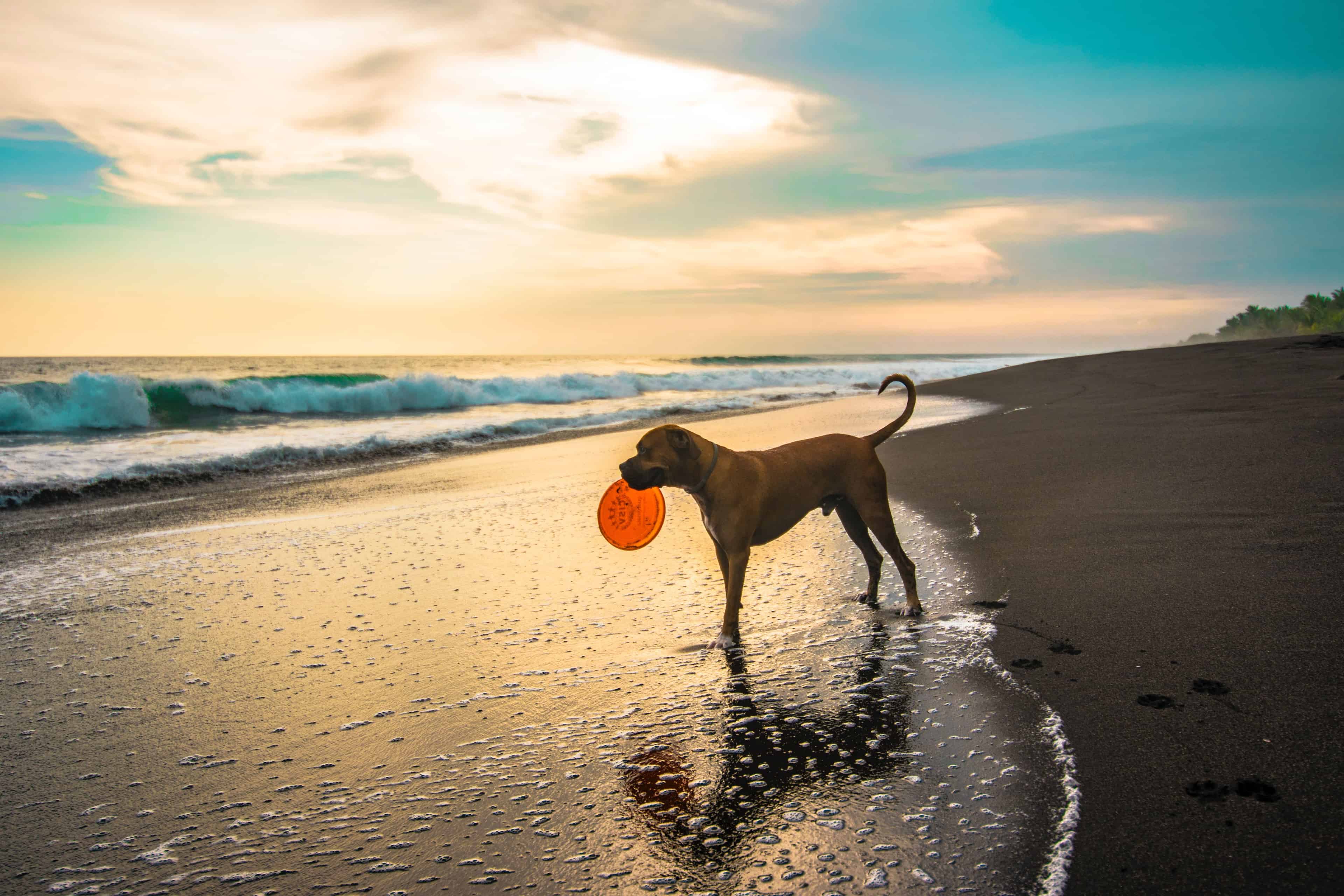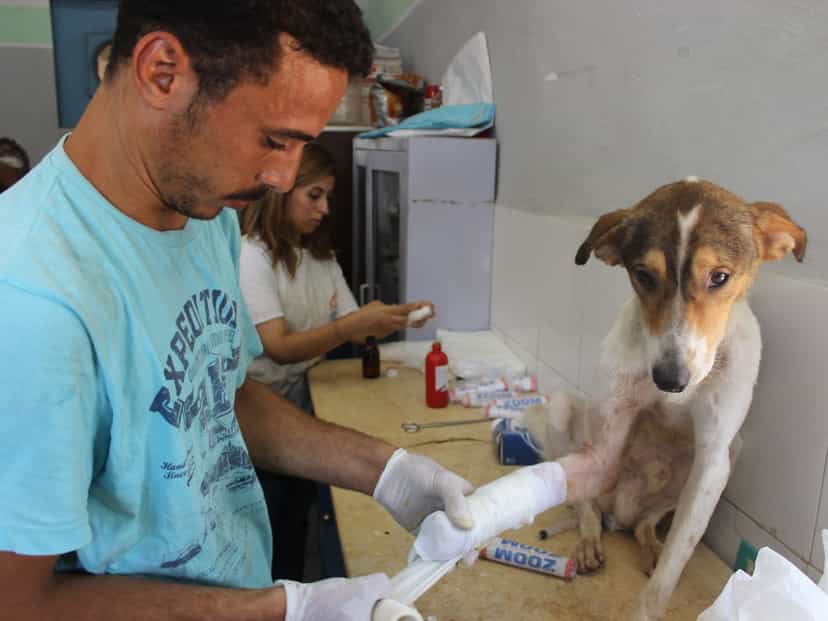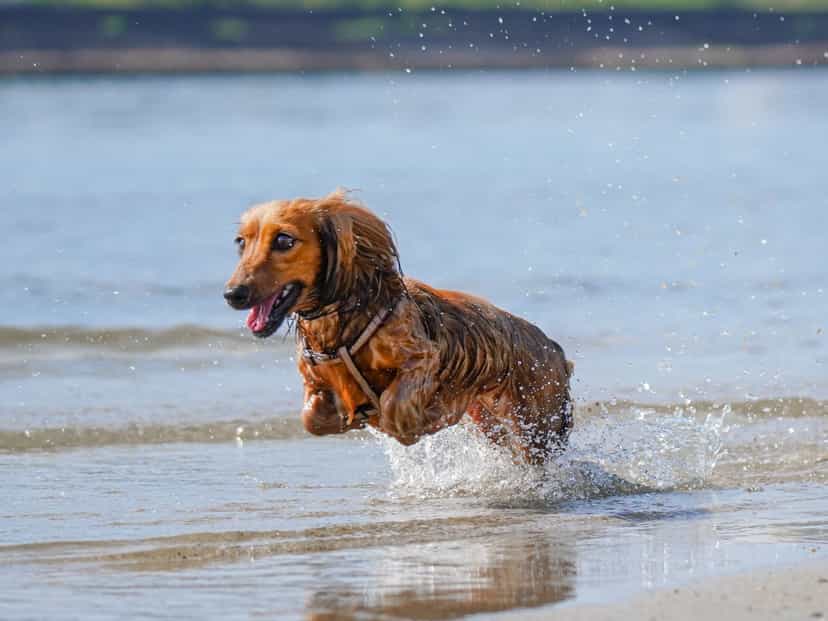
Holidays can be a great opportunity for us to spend some quality time relaxing with our dogs... this article looks at taking your dog on holiday in the UK.
Holidays can be a great opportunity for us to spend some quality time relaxing with our dogs. With the current uncertainty relating to the Covid pandemic many of us are choosing to holiday in the UK this year and possibly take our dogs with us. This blog is focussed on UK holidays and later in the year we will look at taking dog further afield and the impacts of Brexit as a separate topic.
THINGS TO CONSIDER BEFORE YOU BOOK YOUR HOLIDAY!
CONSIDER THE WEATHER / TIME OF YEAR
If you are planning to take your dog away when the weather is likely to be warm think about the time of day that you travel, plan your rest stops (plan more if it is warm), these need to be in areas safe to let your dog stretch his legs on lead. If it is likely to be very cold think about the heating within the accommodation and how accustom your dog is to this. Please read our blog on Top Tips For Travelling In The Car With Your Dog for more detailed information.
SPEAK TO YOUR VET
Before you book if your dog has any underlying health issues / suffers from motion sickness or is senior to ensure that they are fit to travel the distance you are anticipating. If your dog is over 7 years old and has not had a recent health check it may be worth considering.

SELECTING APPROPRIATE ACCOMMODATION
Make sure that your accommodation has a dog friendly policy – let them know that you are planning on bringing a dog along. Find out what facilities are available for your pet – is there a secure garden, do they provide dog bowls / beds, is there somewhere to dispose of poop safely, are there suitable dog friendly walks close by (many styles are not dog friendly). Think about what you will be wanting to do on your holiday and whether your dog will be involved. Ensure that your dog will not be left in an unfamiliar environment alone for long periods of time.
If staying in a cottage, ensure that the accommodation is suitable for the size of your dog and that there is sufficient outside space. Check to see if any areas of the accommodation are off limits to your dog e.g. no dogs allowed upstairs especially important if your dog is used to sleeping with you! There may also be a limit on the number of four legged friends that you can take.

PREPARATION!
Ensure that your dog is up to date with their vaccinations, worming and flea treatments.
If your dog is on any medication, ensure that you have sufficient to take away and for when you return.
Research the vets closest to your accommodation or the places that you will be visiting with your dog and have these numbers (including out of hours) written on the Key Numbers PDF that you will have received on your Dog First Aid course.
Ensure that you have your Dog First Aid kit in the car and your Emergency Pouch to carry with you on walks – you will be in unfamiliar territory! Also ensure you carry a tick twister if you are visiting heavily wooded areas.
Make a checklist of everything that your dog may need before you set off to ensure that you don’t leave something behind (see below for example).
Look up dog friendly cafes, pubs and other local activities.
WHAT TO TAKE?
Here is an example of a checklist that you may wish to use.

SETTLING IN!
Going on holiday can mean lot of change for your dog and create lots of new experiences, they can find this quite unsettling and you will need to take time to help them to feel comfortable. Familiar items such as their bed, favourite blanket or toys can help with this.
Give them time and space to explore the new surroundings, where appropriate and stay within their sight to ensure they start to feel comfortable.
Try to keep to your dog’s routine as much as possible e.g. feeding times, walk times, bedtimes as they are creatures of habit and will feel more relaxed in a familiar routine.
Keep to the same diet as a sudden change can result in upset stomachs.
Never leave them alone for any period that may cause them distress.
If your dog is used to sleeping in a crate and you have used the crate to travel them in the car, make sure that they know where it is and that it has their favourite blankets / toys inside.
Not all dogs will cope with this change and think about their age and health before taking them away as you really want them to have as much fun as you do! I know that one of my dog’s will settle really quickly as long as she can see me but the other takes a couple of days before he really relaxes, and the key is to keep to his structure and routine as any disruption to that makes him anxious.

STAYING SAFE!
The last thing that you want is for anything to happen to your much loved four-legged family member so take precautions and avoid any unnecessary risks.
Walk your dog on a lead unless you are 100% sure it is safe to let them off. You may not know if there is an opening from the field to the road, you may not know how close the cliff edge is, whether there is any broken glass along the footpath, whether there are any areas of stagnant water or whether there are wild animals or livestock. If you do not want to walk your dog on their normal short lead think about using a canicross lead or a training lead which are much longer as long as you are well away from a road.

If you will be walking in the dark, ensure that both you and the dog are visible using Hi Viz or LED collars etc. When I have been away previously, and the nights are darker I even put the LED collars on the dogs when they go into the garden for their last toilet break of the night. Even though I know the garden is secure I want to be able to see where they are at all times.
Keep an eye on your dog’s behaviour to ensure that you pick up on early signs of stress, boredom or illness.
Never leave your dog in a situation that could cause them harm e.g. tied up outside a shop, they become distressed or worse still be stolen. Never leave them alone in a car.
If you plan well and consider the requirements of your dog, you will have an amazing relaxed and enjoyable holiday.


